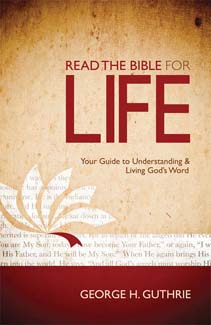Old Testament Sacrifices
Leviticus 1; 6:8-13; 8:18-21; 16:24
Offering: bull, ram or male bird; wholly consumed; no defect
Purpose: Voluntary act of worship, atonement for unintentional sin in general; expression of devotion, commitment, and complete surrender to God
2. Grain offering
Leviticus 2; 6:14-23
Offering: Grain, flour, olive oil, incense, bread, salt; accompanied burnt offering and fellowship offering
Purpose: Voluntary act of worship; recognition of God's provision and goodness; devotion to God
3. Fellowship offering
Leviticus 3; 7:11-34
Offering: Any animal without defect; variety of breads
Purpose: Voluntary act of worship; thanksgiving and fellowship (it included a communal meal)
4. Sin Offering
Leviticus 4:1-5:13; 6:24-30; 8:14-17; 16:3-22
Offering:
1. Young bull (for high priest and congregation)
2. Male goat (for leader)
3. Female goat or lamb (for common person)
4. Dove or pigeon (for the poor)
5. Fine flour (for very poor)
Purpose: Mandatory atonement for specific unintentional sin; confession of sin; forgiveness of sin; cleansing from defilement
5. Guilt Offering
Leviticus 5:14-6:7; 7:1-6
Offering: Ram or lamb
Purpose: Mandatory atonement for unintentional sin requiring restitution; cleansing from defilement; make restitution; pay 20% fine
After reading over this chart, I had one question: What about intentional sin? I expected one of these, such as the guilt offering, to be for intentional sin. Is there no way to atone for intentional sin in the law? The law clearly calls for death in many situations of intentional sin, but does it require death in all cases? Also, What does "unintentional sin" mean? Purely accidental sin (such as, "oops, I didn't see that dead body there, and I bumped into it"), or sin in which the person is not aware of the gravity of their error? (I guess I actually had more than one question!) I will try to find some answers to these questions.
As you read Leviticus, you probably asked yourself at least once, How in the world does any of this relate to me or to my faith? The answer is that it relates in deeply profound ways that are not obvious to most of us. The symbols of the sacrificial system continued in altered form in the Christian tradition. Understanding the sacrificial system as laid out in Leviticus provides much greater depth of meaning to our own Christian tradition. So many of these ideas make their way into the central story that we remember each Sunday when we gather for worship. Here is where I see these 5 showing up in the Eucharist today:
Grain Offering
We might think of the offertory as simply the time when the ushers pass the plates, and we pony up while the choir serenades us with a lovely song to remind us of how much we like church and want to keep it running :) In our Anglican tradition, however, we still retain the original theological significance of the offertory. Originally early Christians would bring wine and homemade bread to church to offer up in thanksgiving to God for Christ. That is why we still have the ushers bring up the bread and wine at communion, though usually the elements are purchased by the church and not brought by home. (I know of some congregations where the bread is still homemade, which is wonderful.) Therefore, the offering is about all of our gifts - not just of money but also of bread and wine - being offered to God. When the priest elevates the host and the cup, he/she is offering it up to God. Having read Leviticus, we can see that this offering of bread and wine bears some resemblance to the grain offering, which was made voluntarily in thanksgiving to God.
Fellowship Offering
We can also see echoes of the fellowship offering in the Eucharist, as it is a celebratory meal that we share together in God's presence.
Sin and Guilt Offerings
God provides the lamb, just as he did for Abraham on Mount Moriah. God has provided Christ as the offering for sin and guilt; we provide the bread and wine as an offering of thanksgiving in response to God's provision for us. (Eucharist itself means "to give thanks.") We are not trying to atone for our sins at the Eucharist; we are instead responding to God's gracious initiative.
Burnt Offering
What would be the parallel here? I see it in the words of the Eucharistic prayer Rite I:
"And here we offer and present unto thee, O Lord, our selves, our souls and bodies, to be a reasonable, holy, and living sacrifice unto thee."
We are the burnt offering, but rather than being toasted to a crisp, we are a "living sacrifice," to borrow the words of Romans 12:1. This is what is called an oblation, a prayer of self-dedication. (See the prayer book catechism, page 857.)
 |
| Francisco de Zurbaran's Agnus Dei |









